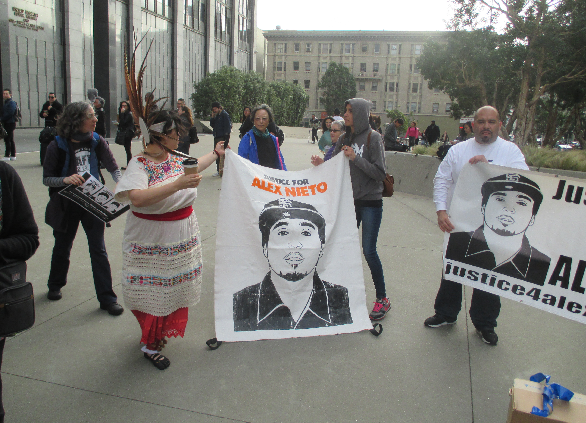
Sup. Shamann Walton has introduced legislation that would make it illegal to call 911 based on racial profiling, and the so-called CAREN act is already getting national attention.

The problem is pretty obvious. As Walton said at a press conference announcing the bill:
Within the last month and a half in the Bay Area, an individual called the police on a Black man who was dancing and exercising on the street in his Alameda neighborhood and a couple called the police on a Filipino man stenciling “Black Lives Matter” in chalk in front of his own residence in San Francisco’s Pacific Heights.
Nationally, a woman called the police on a Black man who was bird watching in New York’s Central Park while accusing him of harassing her and George Floyd was killed in Minneapolis after someone called the police accusing him of using counterfeit money at a store where he purchased cigarettes.
I am, of course, also already hearing criticism: The last thing we need is more crimes in an over-criminalized society. Not every human problem is best solved by another criminal law.
I get it – and yet:
The San Francisco District Attorney’s Office isn’t about to send people to jail for making a 911 call. Walton is pushing a larger message here, and the message is simple.
It’s not okay to call the cops – who arrive with guns – just because of the color of someone’s skin (or their gender or appearance). “One police call when it comes to a Black person or a person of color and lead to damaging consequences, including death,” Walton said.
And I think about this: If Walton’s CAREN Act (which stands for Caution Against Racially Exploitative Non-Emergencies) were in effect in 2014, Alex Nieto might still be alive.
The death of Nieto began with an interaction between Nieto, a Latino security guard eating his dinner on Bernal Hill, and a white man who essentially admitted racial profiling on the witness stand.
He had assumed Nieto might be a gang member because he was a Latino man wearing a red jacket, and based on Snow’s experience at Berkeley High School, that was grounds for concern that Nieto might be someone to fear.
“Given my experience at Berkeley High and the attire of gang members, I made a quick judgment to put Alex – Mr. Nieto – in that category of people I would not mess around with based on his attire at the time,” his deposition stated. “Berkeley High was very segregated. There were various gang factions and the Latino or Mexican gangsters would wear red windbreakers and black hats with flat bills, which is what Mr. Nieto was wearing.” He told the jury that “I saw him wearing clothes similar to what gang members wear.”
That led to a 911 call from another white person who said a Latino man had a gun (which wasn’t a gun, it was a Taser).
I don’t think any of these folks should be, or would be, criminally prosecuted under Walton’s bill. They probably wouldn’t have any legal liability at all.
But everyone involved in the case from the first encounter might have been better educated about the terrible dangers of racial profiling, and the fact that many situations in the city don’t require armed response, and that when cops with guns show up, the result can be terrible.
What about Amilcar Lopez-Perez? It he had been white, would a passerby called 911 and gotten the cops involved (which led to a totally unnecessary and unjustified death)?
How many other people have died because of 911 calls based entirely on a person’s race?
Part of the long-term reform is going to involve removing lethal-force as a default option when the authorities are dealing with people in crisis. But it’s also going to involve a considerable outreach, teaching – and yes, possible legal – process to remind people that someone isn’t dangerous just because they don’t look like you.
Perhaps the CAREN bill is a start.


